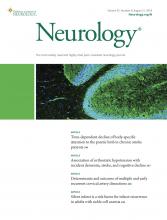
CANNABIS
Smoked cannabis effective in pain and hyperanalgesia modulation in HIV-SN patients
Neurology. 2007;(7):515-21.55 patients with HIV-associated sensory neuropathy (HIV-SN) were randomly assigned to receive either one 0.9g cigarette (3.56% delta-9-tetrahydrocannabinol) per day for 5 days, or its respective placebo with the identical schedule. Patients were assessed on pain on Visual Analogue Scale (VAS), hyperanalgesia, pain to heat stimulation, and incidence and severity of adverse events daily for 12 days. Results showed that smoked cannabis was effective in reducing pain and hyperanalgesia, but had an insignificant effect on pain to heat stimulation. Despite eliciting greater severity of side effects than placebo, smoked cannabis did not raise any serious safety concerns.
Unlock the full ACE Report
You have access to {0} free articles per month.Click below to unlock and view this {1}
Unlock NowCritical appraisals of the latest, high-impact randomized controlled trials and systematic reviews in orthopaedics
Access to OrthoEvidence podcast content, including collaborations with the Journal of Bone and Joint Surgery, interviews with internationally recognized surgeons, and roundtable discussions on orthopaedic news and topics
Subscription to The Pulse, a twice-weekly evidence-based newsletter designed to help you make better clinical decisions
Exclusive access to original content articles, including in-house systematic reviews, and articles on health research methods and hot orthopaedic topics
Or upgrade today and gain access to all OrthoEvidence content for just $1.99 per week.
Already have an account? Log in


Subscribe to "The Pulse"
Evidence-Based Orthopaedics direct to your inbox.
{0} of {1} free articles
Become an OrthoEvidence Premium Member. Expand your perspective with high-quality evidence.
Upgrade Now












































































